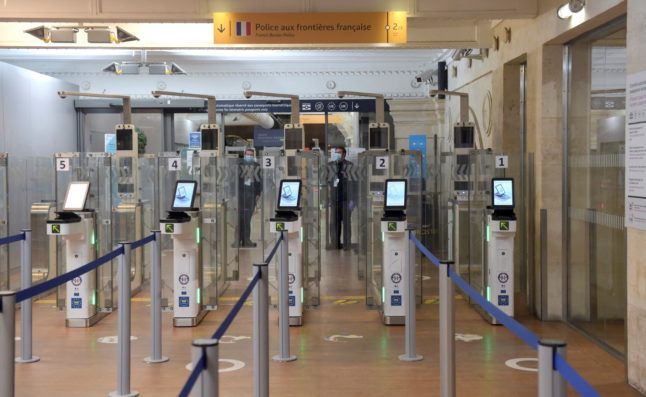Baguettes got UNESCO status
The year 2022 was when baguettes were finally recognised for the delicacy that they are.
At the end of November, the traditional method of baking French baguettes was added to the UNESCO list of intangible cultural heritage items. Baguettes are appreciated across the political spectrum in France, and one person who was particularly happy about the UNESCO status was President Emmanuel Macron, who got the news while on a visit to Washington DC and delivered this rather cute speech.
At the French Embassy in #WashingtonDC, Pres. @EmmanuelMacron celebrates the addition of the 🇫🇷 baguette to the @UNESCO #IntangibleHeritage List ⤵️ pic.twitter.com/cTxhjXj619
— French Embassy U.S. (@franceintheus) December 1, 2022
Here are some ways you can (authentically) celebrate too.
READ MORE: Baguettiquette: Weird things the French do with bread
Free contraception for women under 26
France took a big step forward regarding access to contraception. At the start of the year, certain birth control pills, contraceptive implants and IUDs became fully reimbursable for women under the age of 26 in France.
And the year 2023 has something to look forward to in this respect – the country is planning to make condoms free for all people under 25 in France starting January 1st in 2023. Meanwhile MPs and senators continue to debate adding the right to abortion into the French constitution.
France (nearly) won the World Cup
After beating Morocco in the semi-finals, France came close to clinching the title of football World Cup champions for the second time in a row – before sadly losing on penalties to Argentina in the finals. Nevertheless, the French team came home to a hero’s welcome and and star player Kylian Mbappé received the Golden Boot award for being the lead goalscorer of the tournament.
Plus, there’s the rugby world cup to look forward to in 2023 – as well as being the hosts, France are among the favourites to win the tournament.
Le Petit Prince made its way home
Written in 1943 in New York by French aviator Antoine de Saint-Exupéry, The Little Prince was finally flown across the Atlantic Ocean to be exhibited at the Musée des arts décoratifs in Paris in 2022. Even though the book is a French classic, this was the first time that the original book left the United States, to come to the author’s home country.
The second French female Astronaut
In other events related to space exploration – though this time in the real world – the astronaut representing France in the new class of the European Space Agency will be Sophie Adenot – the second woman to hold the role. Adenot was chosen from over 22,523 applicants.
You can learn more about her impressive career here.
Annie Ernaux won the Nobel Prize for Literature
Antoine de Saint-Exupéry is not the only French writer to have been recognised in 2022. In October, the 82-year old French author, Annie Ernaux, won the Nobel Prize for Literature “for the courage and clinical acuity with which she uncovers the roots, estrangements and collective restraints of personal memory.” Ernaux was the first Frenchwoman and 17th woman in history to have won the award.
The women’s Tour de France made its retour
In another triumph for gender equality, the women’s Tour de France was finally organised again, after several decades of absence and failed attempts. Dutchwoman Annemiek van Vleuten won the 2022 Tour de France. The 2023 multiple stage bicycle race will begin in Clermond-Ferrand on July 23rd, 2023.
Celebrating 400 years of Molière
While the anglophone world might think of him as the French Shakespeare, many Francophones go so far as to call French the “language of Molière” in the playwright’s honour. 2022 marked 400 years since the birth of Molière, who wrote over 30 plays – ranging from comedies to tragedies.
France invested in cultural activities for the youth
In 2022, France expanded its “culture pass” – a scheme is designed to allow young people, with EU nationality, to receive money to benefit from cultural activities in France – to 15 through 17 year olds. Young people were able to sign up for free, and the plan gave additional funding to French schools per month, per student, to facilitate cultural excursions.
France launched better protections for digital consumers
As mobile apps, digital subscriptions (like streaming services) and video games become more popular, the French government made sure to pass legislation that would ensure consumers would be able to ask for compensation, replacement or repair if the product ordered failed to conform to the description given pre-purchase.
And finally – The Local France launched its podcast!
In perhaps the most exciting event of 2022 (okay, maybe just for us at The Local…), the Talking France podcast launched. Our podcast started to help readers and listeners have a better grasp on the French presidential election, and now it has transformed into a weekly episode where we discuss the big news and talking points in France as well as explore and explain the major issues that impact life in the country. We also answer your essential questions and look ahead at what’s coming up.
You can find Talking France on Spotify, Apple or Google podcasts, download it HERE or listen to the latest episode on the link below.



 Please whitelist us to continue reading.
Please whitelist us to continue reading.
I was lucky enough to see the Petit Prince exposition au Musée des arts décoratifs – it was the only museum I visited that week that had a line to get in, and nearly all of the people in line were French. The expo was superbe.